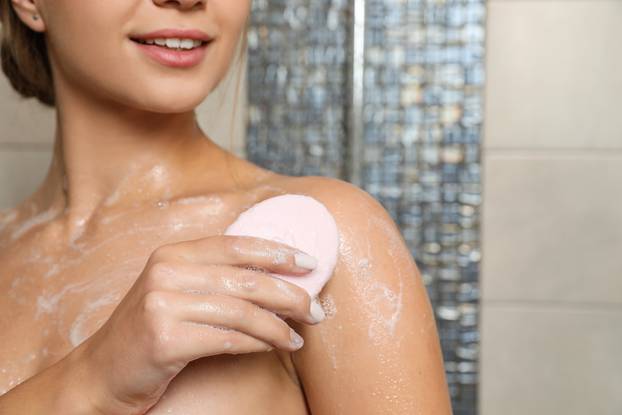Do you know how to shower properly? Here are the most common mistakes many do

Showering is a daily routine for many, but some habits that are considered healthy can actually harm the skin and health. Here are some frequent mistakes that are important to recognize and tips on how to correct them.
Too often shower
If a person is not sweaty or visibly dirty, it is not necessary to shower every day. Too often washing removes natural oils and useful bacteria from the skin, which can lead to dryness, itching and cracking of the skin, through which harmful bacteria penetrate. In addition, excessive shower consumes precious water. However, the hands should be washed regularly – it remains a golden rule.
Watch the video:
02:28
Elephant ‘Mary’ delighted scientists using a shower bowel
Aggressive soaps
Antibacterial soaps often remove useful bacteria from the skin, creating a space to develop resistant and harmful microorganisms. Also, strong soaps can dry out the skin. Better choices are mild soaps with added oils, delicate cleaners or shower gels with moisturizing properties. People with eczema or sensitive skin should avoid fragrant soaps and choose those without perfume.
Rare replacement of towels
A damp towel is an ideal place to develop bacteria, fungi and molds. If it does not change often enough, it can cause fungal infections such as athletic foot, fungus on nails or nipples. The towel should be washed at least once a week, and during illness or in wet conditions and more often. After use, it should be spread on the holder and not hang on the hook to dry faster.
Irregular maintenance of LUFE
Lufa or sponge is an ideal place to build bacteria. It is recommended to clean it once a week – a brief soaking in a diluted bleach solution and a thorough rinse. Although it is most practical to keep her in the shower, it is better to dry it in a dry, airy place. Natural luf should be changed every 3-4 weeks and plastic variants every 2 months.
Pretty water
Hot showers can be comfortable, especially in winter, but warm water removes natural oils and further dries the skin. It is recommended to use warm and not hot water, and limit the shower to 5 to 10 minutes – especially in people with sensitive skin, eczema or psoriasis.
Too often hair washing
Most people do not have to wash their hair every day unless they have a oily scalp. Curly, dry or chemically treated hair can be further drained with overwhelming. Even with daily exercise, it is recommended to find balance and wash your hair according to individual needs. With age, the scalp produces less sebum, so the hair is looking for a softer approach.
No handle or carpet
The falls during the entry into the shower or exit from the tub are a common cause of injuries, especially in the elderly. Setting a security handles and anti -slip substrates is an important preventive measure for all generations.
Dirty shower head
The shower contains tiny holes that easily retain moisture and become fertile soil for bacteria. They can be scattered through the air during the shower and inhale. It is recommended to take it occasionally and boil it and let go of hot water through it for at least a minute before the shower. After the shower, it should be discharged as much water from the shower.
Dry skin after shower
Creams and lotions act best when they are applied immediately after the shower – then they capture moisture in the skin. It is ideal to apply them within a few minutes after wiping with a towel.
Excessive use of soap
The whole body is not necessary to soap. It is enough to use soap on armpits, feet, groin, hands and face. The rest of the body can be rinsed with warm water. The use of soap on sensitive parts, such as the vagina, can impair a natural bacterial balance and cause irritation.
Poor treatment with minor injuries
Fewer cuts should not be protected from water when showering. Moreover, the shower can be an ideal place for daily wound cleaning – mild soap and warm water. After the shower, the wound should be dried and the fresh bandage should be applied. More serious injuries require a doctor’s advice.
Ventilation levies
The moisture that occurs during the shower can damage the walls, wooden surfaces in the long run and create conditions for mold development. A fan or bathroom window should be regularly turned on during and after shower to spray the moisture.
Shower
Curtains accumulate soap operas and can become an ideal background for the development of bacteria. People with sensitive immunity can be a health risk. It is recommended to regularly wash or replace the curtain, it writes Webmd.












:format(jpeg):fill(f8f8f8,true)/s3/static.nrc.nl/taxonomy/bf9b707-commentaar-itemafbeelding-2024.png)